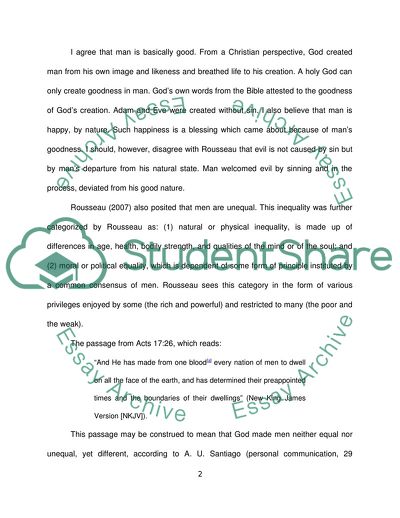Cite this document
(Discuss Rousseau's ideas about human nature Literature review, n.d.)
Discuss Rousseau's ideas about human nature Literature review. https://studentshare.org/sociology/1717083-discuss-rousseaus-ideas-about-human-nature
Discuss Rousseau's ideas about human nature Literature review. https://studentshare.org/sociology/1717083-discuss-rousseaus-ideas-about-human-nature
(Discuss Rousseau'S Ideas about Human Nature Literature Review)
Discuss Rousseau'S Ideas about Human Nature Literature Review. https://studentshare.org/sociology/1717083-discuss-rousseaus-ideas-about-human-nature.
Discuss Rousseau'S Ideas about Human Nature Literature Review. https://studentshare.org/sociology/1717083-discuss-rousseaus-ideas-about-human-nature.
“Discuss Rousseau'S Ideas about Human Nature Literature Review”. https://studentshare.org/sociology/1717083-discuss-rousseaus-ideas-about-human-nature.


